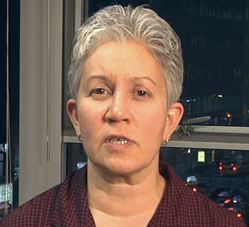November consumer confidence in the United States fell steeply to 88.7 from 94.1 in October, according to industry research group The Conference Board. Consumer confidence refers to how people see short-term future business conditions and jobs.
Economists had predicted the consumer confidence index to jump to 96.
Government agencies, banks, construction companies, manufacturers and retailers follow consumer confidence patterns closely. Their planning is strongly influenced by it.
The Present Situation Index also declined, from 94.4 in October to 91.3 in November, while the Expectations Index slid to 87 from 93.8.
The Conference Board’s survey clashed with the Thomson Reuters + University of Michigan report which showed consumer sentiment in November to be at a 7-year high.
Director of Economic Indicators at The Conference Board, Lynn Franco, said:
“Consumer confidence retreated in November, primarily due to reduced optimism in the short-term outlook. Consumers were somewhat less positive about current business conditions and the present state of the job market; moreover, their optimism in the short-term outlook in both areas has waned. However, income expectations were virtually unchanged and gas prices remain low, which should help boost holiday sales.”
Despite lower consumer confidence, Ms. Franco believes holiday sales will be strong.
The proportion of Americans saying business conditions were “good” fell to 24% from 24.7%, while those saying conditions were “bad” rose to 22.4% from 21.3%.
Only 16% of people in November thought jobs were “plentiful”, versus 16.5% in October, while those saying jobs were “hard to get” nudged up from 29% to 29.2%.
After improving in October, consumer optimism declined in November. The percentage of people expecting business conditions to get better over the next six months fell to 17.6% from 19.4% in October, while 10.7% thought things would get worse versus 8.9% in the previous month.
Increased labor market and income pessimism
Pessimism also increased in consumers’ outlook for the labor market. In November, only 15% expected more jobs in the next six months, compared to 16% in October, while those forecasting fewer jobs increased to 16.4% from 14.1%.
Only 16.3% thought their incomes would go up during the next six months, which was down on October’s 16.7%, while 11.4% expected incomes to fall versus 11.3% in October.

